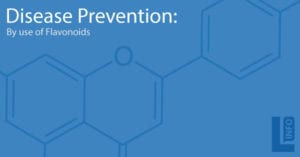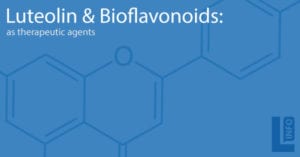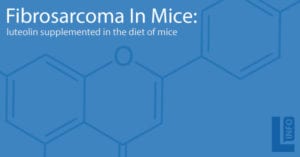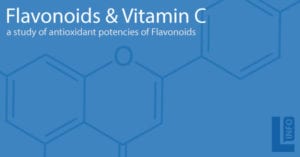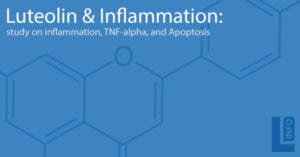What is Luteolin?
Luteolin is a type of citrus flavonoid, that is often found in leaves, rinds, barks, clover blossom, and ragweed pollen. Natural sources include celery, broccoli, green pepper, parsley, thyme, dandelion, chamomile, carrots, olive oil, peppermint, rosemary, oranges, and oregano.
What Does Luteolin Do?
Luteolin is categorized as a GABAA receptor positive allosteric modulator. Positive allosteric modulator (PAM) molecules increase the activity of the GABAA receptor protein in the central nervous system.What does that even mean? Basically, GABA is a neurotransmitter in our central nervous system. GABAA PAMs increase the effect of GABA by opening up the channel more frequently or for longer periods of time.
So, what is the benefit? Certain drugs, like barbiturates, benzodiazepines, and phenobarbital are GABAA PAMs which can help with sleep, pain, epileptic symptoms, and more.
Luteolin is different in that it's a natural flavonoid that affects the central nervous system in a similar way. Luteolin has been found to have anti-inflammatory and anti-oxidant properties, as well as increased memory efficacy.
What Is A Flavonoid?
You've probably heard the words "flavonoid" or "antioxidant" before but do you really know what they are? In order to understand the benefits of luteolin and other naturally occurring compounds, it helps to understand what they are and where they come from!
-
Flavonoid
Flavonoids are the organic compounds responsible for giving plants their color! Flavonoids are plant pigments that are responsible for flower coloration. They produce a yellow or red/blue pigmentation in petals that are solely designed to attract pollinator animals. [source]
-
Antioxidant
Antioxidants are molecules that inhibit the oxidation of other molecules. Oxidation is a chemical reaction that can damage cells and antioxidants simply stop these reactions from happening.
The term "antioxidant" is mainly used for two different groups of substances: industrial chemicals which are added to products to prevent oxidation, and natural chemicals found in foods and body tissue which are said to have beneficial health effects. [source]

